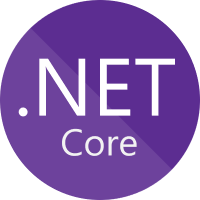02
MayA Brief Version History of .NET Framework
Introduced RyuJIT, a new JIT compiler for 64-bit systems
Introduced Open Source .Net Framework Packages
Support for Code page encodings
Improvements to event tracing
Includes performance and debugging improvements
Support for automatic binding redirection
Expanded support for Windows Store apps
Features Enhancements to CLR 4.0
Async Support
Support for building Windows Store apps
Features Enhancement to WPF, WCF, WF, and ASP.NET
Introduced CLR 4.0
Managed Extensibility Framework (MEF)
Dynamic Language Runtime (DLR)
Task Parallel Library
Built-In AJAX Support
LINQ
Dynamic Data
Multi-targeting Framework Support
Windows Presentation Foundation (WPF)
Windows Communications Foundation (WCF)
Windows Workflow Foundation (WF), and CardSpace
Introduced CLR 2.0
Generics and generic collections
Partial classes
Nullable types
Anonymous methods
Introduced many new controls and features to ASP.NET
Features Enhancement to ASP.NET and ADO.NET
Built-in support for mobile ASP.NET controls
Security Enhancement
Built-in support for ODBC and databases
Internet Protocol version 6 (IPv6) support
Introduced CLR 1.0
Support for Object-oriented Web application development
Use of DLL class libraries
Note
CLR 3.0 is skipped by Microsoft.
What do you think?
I hope you will enjoy the .NET Framework features. I would like to have feedback from my blog readers, especially regarding Dot Net Certification. Your valuable feedback, questions, or comments about this article are always welcome.







